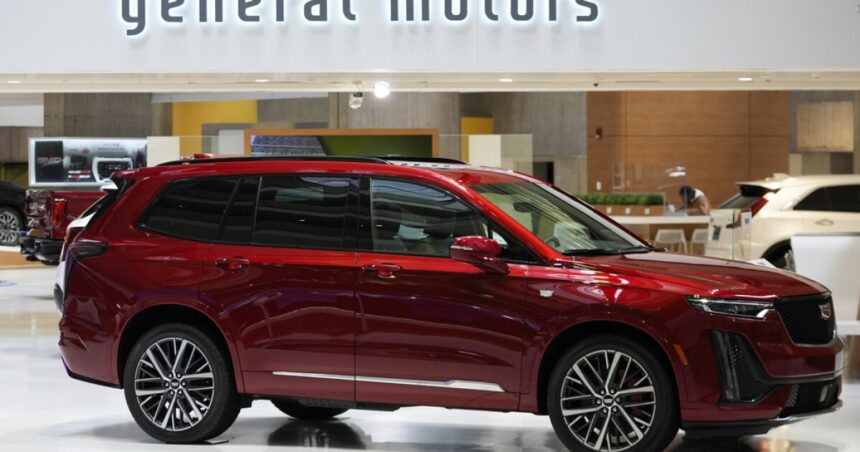General Motors is facing nearly $146 million in penalties from the federal government for non-compliance with emissions and fuel economy standards in 5.9 million of its older vehicles.
The National Highway Traffic Safety Administration announced that certain GM vehicles from the 2012 through 2018 model years did not meet federal fuel economy requirements.
This penalty follows the Environmental Protection Agency’s findings that GM pickup trucks and SUVs emit more than 10% additional carbon dioxide than initially claimed in compliance testing.
The affected vehicles will remain on the road as they cannot be repaired. Despite consuming at least 10% more fuel than indicated on their stickers, GM won’t have to adjust the miles per gallon figures on those stickers, according to the EPA.
“Our investigation has held GM accountable and supports an essential program aimed at reducing air pollution and safeguarding communities nationwide,” stated EPA Administrator Michael Regan.
GM responded by stating that it followed all pollution and mileage certification regulations for its vehicles. The company emphasized that it is not acknowledging any wrongdoing or failure to comply with the Clean Air Act.
The issue stems from changes in testing procedures implemented by the EPA in 2016, explained GM spokesman Bill Grotz.
GM owners are not required to take any action as there is no defect in the vehicles, Grotz reassured.
Related: Study says remote work could cause drop in carbon emissions
The enforcement action applies to approximately 4.6 million full-size pickups and SUVs and 1.3 million midsize SUVs, affecting models like the Chevy Tahoe, Cadillac Escalade, and Chevy Silverado. This includes around 40 variations of GM vehicles.
GM will forfeit credits used to ensure greenhouse gas emissions remain below the fleet standard for emissions set each model year, as per the EPA. In its SEC filing, GM estimated the total resolution cost at $490 million.
As GM agreed to address the excess emissions, the EPA opted not to make a formal determination regarding the reasons behind the increased pollution levels.
However, David Cooke from the Union of Concerned Scientists questioned how GM could overlook pollution levels exceeding initial tests by over 10%, considering the widespread issue across various vehicles. “You don’t simply make a greater than 10% error in calculations,” he remarked.
Dan Becker of the Center for Biological Diversity’s Safe Climate Transport Campaign criticized GM’s violations, emphasizing the necessity for stringent pollution regulations. He concluded, “Supreme Court, take notice!”
In previous pollution cases, automakers have faced fines under the Clean Air Act for similar violations, typically involving the Department of Justice. Hyundai and Kia, for instance, encountered Justice Department action in a comparable situation.
The Justice Department declined to comment, while GM stated that the settlement resolves all government claims.
Related: General Motors announces that it will stop making the Chevy Malibu
Cooke suggested that GM owners might consider legal action against the company due to receiving lower gas mileage than advertised.
In a 2014 settlement, Hyundai and Kia paid a $100 million civil penalty to resolve a two-year investigation into overstated gas mileage on window stickers of 1.2 million vehicles.
Both Korean automakers denied breaking the law, with Hyundai attributing the inflated mileage figures to a genuine misunderstanding of the EPA’s complex testing rules.
In 2015, Volkswagen confessed to deliberately manipulating nearly 500,000 cars to pass U.S. smog tests.
The German automaker acknowledged installing software designed to bypass emissions testing, enabling vehicles to perform more powerfully while emitting up to 40 times the legal pollution limit. Volkswagen incurred over $30 billion in fines and settlements as a result, with two U.S. executives receiving prison sentences.





